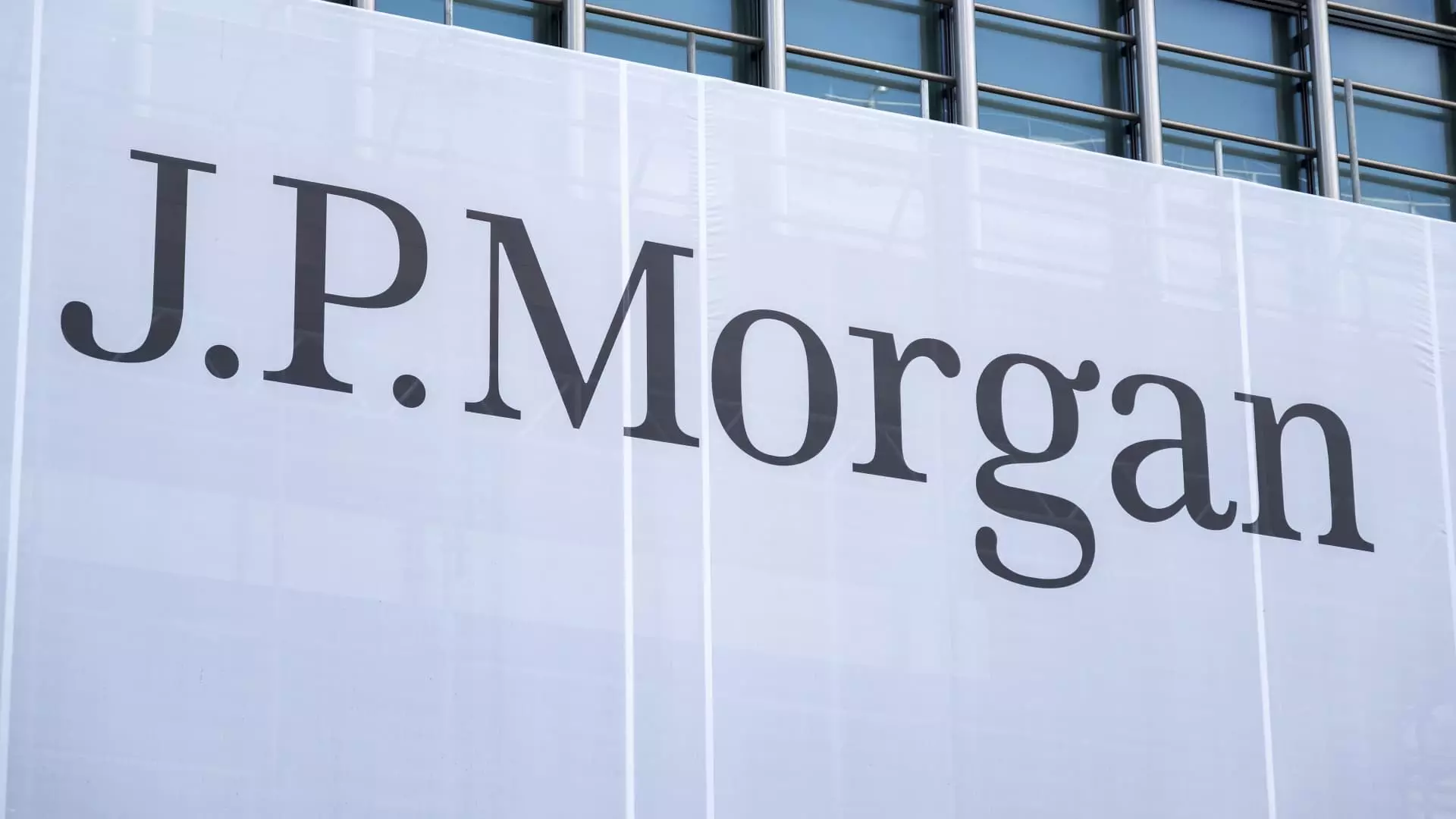JPMorgan Chase: A Call for Caution Amidst High Expectations

In the ever-evolving landscape of financial markets, investor sentiment often oscillates between optimism and skepticism. Recently, Baird analyst David George has thrown a significant amount of caution into the mix by downgrading JPMorgan Chase’s stock from neutral to underperform. This analysis is not merely a reflection of market trends but raises substantial questions regarding the bank’s long-term valuation and growth potential. The analyst’s price target of $200 signifies a worrying downside of approximately 19% from the stock’s last closing price, prompting investors to reconsider their positions.
George’s apprehension predominantly stems from what he describes as a “poor” risk-reward profile for JPMorgan Chase. This claim is grounded in the assertion that the bank is currently over-earning in key areas such as net interest income and credit. At the heart of his argument is the bank’s current valuation, reportedly hovering at around 2.6 times its tangible book value and over 14 times the projected earnings per share for 2026. Such high multiples raise red flags for both seasoned and novice investors alike. In his communication to clients, George underscores the gravity of this situation, emphasizing that the stock’s trading metrics are at or near all-time highs, signaling a potential bubble.
Another layer to consider is the potential shift in the regulatory environment, especially in light of a possible second Trump administration, which could herald friendlier policies for banking institutions. Despite this optimistic outlook, George is not convinced that JPMorgan Chase will significantly expand its stock buyback programs. He expresses concerns that, at current valuation levels, share repurchases may not yield substantial increases in earnings per share, suggesting that such financial maneuvers would be more of a distraction than a strategic benefit.
Interestingly, George’s downgrade stands in stark contrast to the majority opinion on Wall Street. According to LSEG data, a significant portion of analysts, 15 out of 24, continue to advocate for a buy or strong buy rating on JPMorgan Chase shares. This dissonance invites further inquiry into the disconnect between analysts’ cautious perspectives and the prevailing bullish sentiments among a majority of market experts. It raises the essential question: Are investors setting themselves up for disappointment by ignoring the underlying risks that a lone analyst has identified?
The case put forth by David George calls for serious reflection among investors holding JPMorgan Chase shares. His downgrade, rooted in concerns of overvaluation and the potential stagnation of the bank’s capital return strategies, compels investors to weigh their options carefully. In a market characterized by rapid fluctuations and varying expert opinions, exercising caution may prove to be the wisest approach moving forward. Ultimately, while the prevailing sentiment may lean toward bullishness, George’s insights serve as a crucial reminder to scrutinize the intrinsic value of investments, particularly in an environment where expectations may be unreasonably high.





